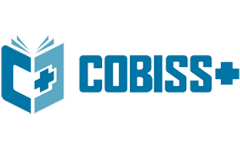The Effect of Deferred Tax Expenses on Earnings Management
DOI:
https://doi.org/10.61841/hmkpxv63Keywords:
Deferred tax expenses, Earning managementAbstract
This study is entitled "The Effect of Deferred Tax Expenses on Earnings Management." Companies always look for loopholes to prevent small tax profits from being paid and increase profits to attract investors. This can be used as information in financial statements to look good. This study aims to analyze the effect of deferred tax expenses on earnings management (Study on Automotive Sub-Sector Manufacturing Companies listed on the Stock Exchange for the period 2014-2018). The data used in this study comes from audited financial statements at 7 companies listed on the Indonesia Stock Exchange for the period 2014-2018. The research method used in this study is a descriptive research method with a quantitative approach. The sampling technique used is nonprobability sampling; samples are taken by the purposive sampling technique.
Downloads
References
[1] Abdul Hadi, A.R., Zainudin, Z., Hussain, H.I., & Rehan, R. (2019), Interaction of Short-Term and Long-Term Interest Rates in Malaysian Debt Markets: Application of Error Correction Model and Wavelet Analysis, Asian Academy of Management Journal, 24 (Supp. 1), 19–31.
[2] Agoes, Sukrisno, and Estralita Trisnawati. 2013. Accounting for Taxation, edition 3. Jakarta: Salemba Empat.
[3] A.R. Belkaoui. 2007. Accounting Theory. 5th Edition. Book 2. Affordable Edition of Jakarta: Salemba Empat.
[4] Bastian, Indra. 2006. Public Sector Accounting: An Introduction. Jakarta: Erlangga Publisher.
[5] Budiman (2013). Effect of the burden of deferred tax and accruals on earnings management) Empirical Study of Manufacturing Companies on the Indonesia Stock Exchange (IDX).
[6] Christina Ranty Sumomba (2012). Effects of Deferred Tax Expenses and Tax Planning on Profit Management.
[7] Dewi Kusuma Wardani Desifa Kurnia Santi (2018). Effect of Tax Planning, Company Size, and Corporate Social Responsibility (CSR) on Profit Management. Accounting journal, Faculty of Economics, University of Wijayata, Bachelor of Yogyakarta.
[8] Fahmi, Irham. 2013. Analysis of Financial Statements, Third Print. Bandung: Alfabeta.
[9] Felicia & Meiriska (2015). Analysis of the effect of current tax, deferred tax expense, and accrual basis on earnings management.
[10] Ghozali, Imam. 2013. Application of Multivariate Analysis with the IBM SPSS Program. Edition 7. Semarang: Diponegoro University Publisher.
[11] Harahap, Sofyan Syafri. 2011, Critical Analysis of Financial Statements, 5th Edition. Jakarta: Raja Grafindo Persada.
[12] Harnanto. 2011. Tax Accounting. Yogyakarta: BPFE-Yogyakarta. Tax Planning, First Edition. Yogyakarta: BPFE, Yogyakarta.
[13] Islahuzzaman. 2012. Terms of Accounting and Auditing. First Edition. Jakarta:
[14] Kresnan Rahmanto (2017). Effect of Deferred Tax Expenses, Leverage, on Management. Accounting journal of the Faculty of Economics, Surabaya State University.
[15] Lindira Sukma Dewi and I Gusti Ketut Agung Ulupui. Effect of the company's tax expense on income and assets on earnings management.
[16] L.M., Samryn. 2011. Introduction to Accounting: Easy to Create a Journal with a Transaction Cycle Approach (Edisis 1). Jakarta: Rajawali Press.
[17] Muljono, Djoko. 2009. Tax Planning Wisely Deal with Taxes. Yogyakarta: Andy Offset. 2011. General Taxation Provisions, ANDI Publisher. Yogyakarta.
[18] Resmi, Siti. 2003. Taxation Theory and Case. Jakarta: Salemba Empat.
[19] Rudianto. 2012. Introduction to Kosep Accounting and the Technique of Making IFRS Adapted Financial Reports. Jakarta: Erlangga.
[20] Sadeli, Lili M. 2010. Accounting Basics. Jakarta: Bumi Aksara.
[21] Santoso, Singgih. 2012. SPSS Version 20. Complete Guide to Jakarta: PT Elex Media
[22] Saudi, M.H.M., Sinaga, O., & Rospinoedji, D., The role of tax education in supply chain management: A case of Indonesian supply chain companies, Polish Journal of Management Studies 18(2):304-319, December 2018.
[23] Scott, William R., 2006. Financial Accounting Theory. Fourth Toronto: Prentice Hall International Inc.
[24] Stice, Earl K., James D. Stice, and K. Fred Skousen. 2004. Intermediate Accounting, Fifteen Edition, Book 1, Interpreting by Salemba Empat. Jakarta: Salemba Empat.
[25] Sugiyono. 2013. Educational Research Methods. Quantitative, qualitative, and R&D approaches. Bandung: Alfabeta
[26] Sugiyono, 2017. Quantitative and Qualitative Research Methods & RND. Bandung: Alfabeta.
[27] Suhayati, Ely, and Sri Dewi Anggadini, 2009, Financial Accounting, First Edition, Yogyakarta: Graha Ilmu.
[28] Sulistyanto, Sri. 2008. Profit Management: Theory and Empirical Model. Jakarta: PT. Gandedia Widiasarana.
[29] Sunyoto, Danang. 2013. Accounting Research Methodology. Bandung: PT Refika.
[30] Supriyanto, Edy. 2011, Tax Accounting, Yogyakarta: Graha Ilmu.
[31] Tiara Timuriana and Rezwan Rizki Muhamad (2015). Effects of Deferred Tax Assets and Deferred Tax Expenses on Lab Management.
[32] Waluyo. 2011. Indonesian Taxation, Book 1 Revised Edition 5. Jakarta: Salemba Empat.
[33] Waluyo. 2012. Tax Accounting, 4th Edition. Jakarta: Salemba Empat.
[34] Yulianti, 2004. Deferred Tax Load Capability in Predicting Earning Management. National Accounting Symposium VII. IAI.
[35] Zain, Mohammad, 2005. Tax Management. Jakarta: Salemba Empat.
[36] Raja, S., Ramya, I. Evaluation of in vivo antioxidant activity of methanol extract of Buddleja asiatica (2018). International Journal of Pharmaceutical Research, 10 (2), pp. 124-131.
[37] Richa tyagi, Gaurav sharma, Nakuleshwar dut jasuja, and Ekta Menghani (2016) describe Indian medicinal plants as an effective antimicrobial agent. Journal of Critical Reviews, 3 (2), 69-71.
[38] Mir Javid Iqbal, Mohammad Ishaq Geer, Parvez Ahmad Dar. "Medicines Management in Hospitals: A Supply Chain Perspective." Systematic Reviews in Pharmacy 8.1 (2017), 80-85. Print. doi:10.5530/srp.2017.1.14
Downloads
Published
Issue
Section
License
Copyright (c) 2020 AUTHOR

This work is licensed under a Creative Commons Attribution 4.0 International License.
You are free to:
- Share — copy and redistribute the material in any medium or format for any purpose, even commercially.
- Adapt — remix, transform, and build upon the material for any purpose, even commercially.
- The licensor cannot revoke these freedoms as long as you follow the license terms.
Under the following terms:
- Attribution — You must give appropriate credit , provide a link to the license, and indicate if changes were made . You may do so in any reasonable manner, but not in any way that suggests the licensor endorses you or your use.
- No additional restrictions — You may not apply legal terms or technological measures that legally restrict others from doing anything the license permits.
Notices:
You do not have to comply with the license for elements of the material in the public domain or where your use is permitted by an applicable exception or limitation .
No warranties are given. The license may not give you all of the permissions necessary for your intended use. For example, other rights such as publicity, privacy, or moral rights may limit how you use the material.
















